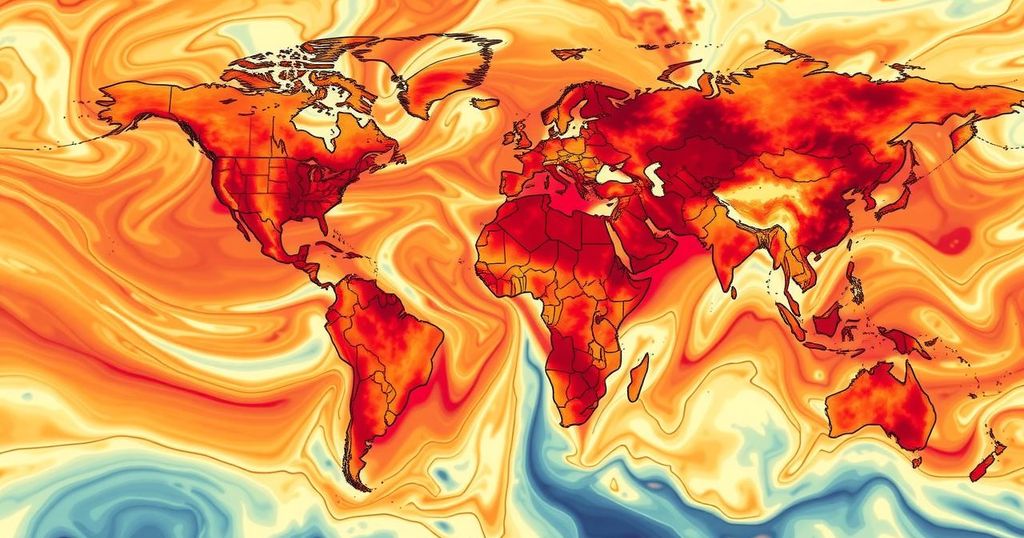Research indicates that human-induced climate change led to an average of 41 additional days of dangerous heat in 2024, affecting health and ecosystems. A report by WWA and Climate Central urges countries to prepare for escalating climate risks, emphasizing the need for a rapid shift away from fossil fuels to combat rising dangers such as heat waves and severe weather events.
Recent research unveiled that climate change has contributed to an average of 41 additional days of extreme heat in 2024, adversely affecting human health and ecosystems. This report, conducted by World Weather Attribution (WWA) and Climate Central, emphasizes the pressing necessity for countries to prepare for escalating climate-related risks to mitigate fatalities and damage in 2025 and beyond. The study suggests that urgent action is required to transition from fossil fuels to combat the ongoing threats of severe heat waves, droughts, wildfires, storms, and floods.
The findings indicate that climate change intensified 26 out of the 29 weather events analyzed, resulting in the loss of at least 3,700 lives and the displacement of millions. The report underscores that the impact of climate change has surpassed that of El Nino in influencing many extreme weather occurrences. Friederike Otto, a key figure in the report and a senior lecturer in Climate Science at Imperial College London, remarked that the effects of fossil fuel-induced warming have never been clearer or more destructive than they are in 2024. He emphasized the catastrophic consequences that extreme weather has caused, including widespread fatalities and displacements triggered by disasters such as floods in Spain and hurricanes in the United States.
The report also projected that 2024 is poised to be the hottest year on record, following a series of unprecedented temperature readings. Scientists echoed concerns that unless a swift transition away from fossil fuels is enacted, the prevalence of dangerous heat days will persistently increase, posing significant threats to public health. They advocated for key actions for 2025, including rapid reductions in fossil fuel reliance, enhancements in early warning systems, and increased international support for developing nations to bolster resilience against the effects of climate change.
Experts, including Julie Arrighi from the Red Cross Red Crescent Climate Centre, stressed that urgency is paramount in accelerating adaptation efforts globally, especially as another year of extreme weather demonstrates inadequate preparations for a world experiencing 1.3-1.5°C of warming. Ben Clarke from Imperial College London reflected on the urgency of the situation, describing the report as indicative of a failure to achieve necessary emission reductions and preparedness against climate change. He asserted that the unfolding consequences manifest in record-setting extreme weather events resulting in tragic loss of life and livelihoods.
Human-induced climate change is recognized as a critical global issue, leading to increasingly severe weather patterns and health-related concerns. The rapid rise in global temperatures has been linked to reliance on fossil fuels, prompting scientific calls for a transition to greener energy sources. The implications of climate change are felt worldwide, with detrimental effects on ecosystems, public health, and social stability. The ongoing research underscores the urgency for nations to enhance resilience and preparedness for climate-related challenges, particularly as the frequency and intensity of extreme weather events continue to escalate.
In summary, the alarming increase of 41 days of dangerous heat in 2024, attributed to anthropogenic climate change, highlights the urgent need for global action. The findings reinforce the necessity for transitioning away from fossil fuels and improving adaptive measures. With severe weather events causing significant loss of life and displacement, the calls for urgent reforms and adaptive strategies are clearer than ever. The forecast for 2025 mandates a collective effort from all nations to respond to the daunting realities of climate change and its consequences.
Original Source: www.pna.gov.ph






